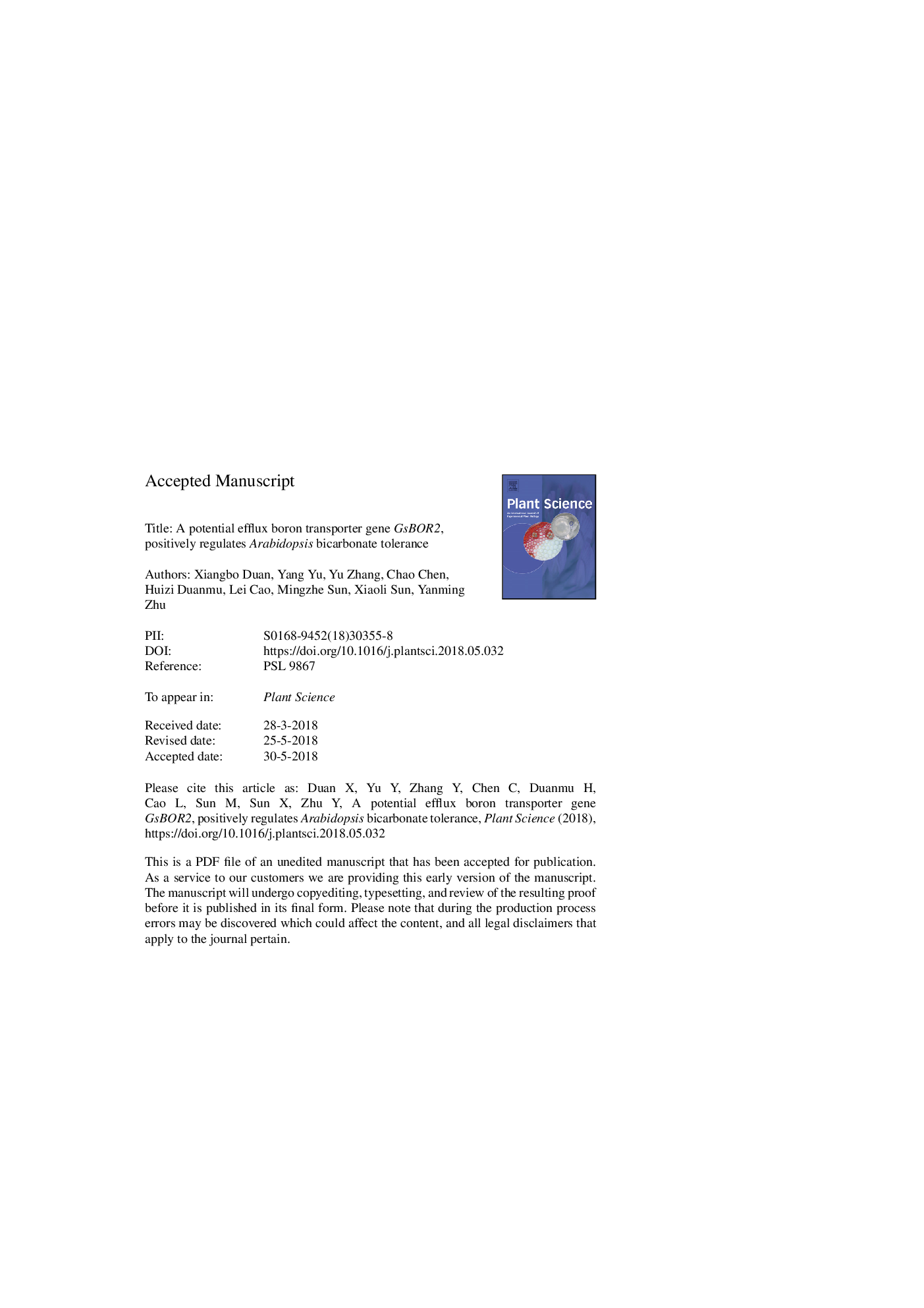| Article ID | Journal | Published Year | Pages | File Type |
|---|---|---|---|---|
| 8356319 | Plant Science | 2018 | 31 Pages |
Abstract
Soil alkalization severely restricts agricultural production and economic development worldwide, this problem is far more serious in Songnen Plain, the largest commodity grain base of China. However, little research has been done concerning the mechanisms of plant responses to alkaline stress to date. In this study, we isolated an alkali inducible gene GsBOR2 from Glycine soja on the basis of RNA seq data. GsBOR2 sh high protein sequence similarity with the known boron transporters in other species. The expression of GsBOR2 was highly up-regulated by 50â¯mM NaHCO3 treatment and displayed tissue specificity. We then generated the transgenic Arabidopsis overexpressing GsBOR2 and found that the transgenic lines exhibited enhanced alkaline tolerance compared to wild type plants, as illustrated by longer roots and greater shoot biomass. Moreover, GsBOR2 overexpression was also capable of increasing plant resistance to KHCO3 treatment but not to high-pH stress. Functional complementation of Scbor1 mutant yeasts suggested that GsBOR2 could likely mediate the efflux of boron from cells. Taken together, the alkali responsive gene GsBOR2 is a positive regulator of plant bicarbonate tolerance.
Keywords
Medicago truncatulaSD mediumLiAcO. sativaMDASelaginella moellendorffiiG. sojaT-DNAOryza sativaA. thalianaMurashige and Skoog mediumArabidopsis thalianaAlkaline stresstransfer DNAEfflux transporterUracilboronBORBicarbonateOverexpressionZea maysMS mediumURALithium acetatemalondialdehydeMeSwild typePhyscomitrella patenspolyethylene glycolPEGGlycine maxGlycine soja
Related Topics
Life Sciences
Agricultural and Biological Sciences
Plant Science
Authors
Xiangbo Duan, Yang Yu, Yu Zhang, Chao Chen, Huizi Duanmu, Lei Cao, Mingzhe Sun, Xiaoli Sun, Yanming Zhu,
